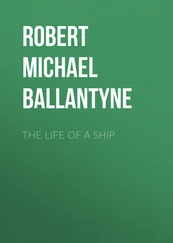The Society’s preference was for able-bodied men, preferably with agricultural experience, and particularly with sheep. Single women of child-bearing age were also in demand in the female-scarce colonies. Hence shepherds, herdsmen and their wives, farm labourers and female domestic servants under the age of 45 were required to contribute just one solitary pound towards their full passage to Australia. This figure increased exponentially with age. Those between 45 and 60 were to pay £5, jumping to £11 for those between 50 and 60 years of age. The cost for children was 10 shillings each.
In reality, even these amounts were beyond many Scots, so for a large number of applicants who otherwise presented well, the full amount was loaned, to be reimbursed in instalments once they had settled in Australia—although this arrangement often fell by the wayside. The priority, it seems, was to see the dead weight of an underclass of ‘mendicant’ Highlanders removed from Britain, with the cost of doing so being a secondary consideration.
The Scots may well have been looked upon as fortunate by their fellow passengers, the English and Irish, travelling under the arrangement of the Board, as the price of emigration for them was considerably higher. As well as receiving a far less generous subsidy on their passage, they also needed to provide a non-refundable deposit with their application should they for any reason be unsuccessful or opt out of the process due to a change of mind.
All were required to supply at least two full sets of clothing, as the voyage would take them through extremes of climate none of them had experienced. For men, the list consisted of six shirts, six pairs of stockings, two pairs of shoes and two complete sets of outer garments, with a strong recommendation that several extra sets of not inexpensive woven woollen shirts also be included. Women were expected to provide six shifts, two flannel petticoats, six pairs of stockings, two pairs of shoes and two outer gowns. [7] Kruithof, 2002, p. 11
Added to this were hats, shawls and bonnets and towels, but for reasons of hygiene, bringing along one’s own bedding was prohibited. This was supplied by the Board, as was an issue of two pounds of soap per person—the first experience many had had of this highly taxed and unaffordable luxury. [8] Kruithof, 2002, p. 31
Whether they be English, Scots or Irish, wholly or partly assisted, the uprooting experience of emigration was universally life-changing, requiring almost incomprehensible stores of courage and strength. Until arriving at the embarkation depot, many had travelled no further than a few miles beyond the boundaries of their local village or parish in their entire lives.
The farewells of those departing were a long, drawn-out affair. For weeks and even months, extended rounds of visiting had commenced, each person in the village sensing the impending departure date as if it were they themselves who were leaving. Some implored them to stay, others expressed a desire—even a promise—to one day join them; all were anxious on their behalf.
On the day itself, trunks and boxes were packed and nailed shut before being loaded onto a hired carriage or wagon. Then, at the appointed hour, the emigrants would climb aboard and take a final look at those faces they had known all their lives, before surrendering to the tears and pulling away from their village forever.
If they were lucky, a short journey to a railway station or port ensued, from where a train or packet steamer would be boarded, headed—in the case of those bound for the Birkenhead depot—for Liverpool. For some of the Scots travelling from the Highlands or islands, a far longer trip lay ahead of them. In every case, a strict timetable had been provided that every emigrant was bound to follow. Lateness in presenting themselves at the depot, it was impressed upon them, was unacceptable, and could result in the forfeiting of the entire voyage.
* * * *
In the town of Tobermory, the largest settlement on the Inner Hebrides Isle of Mull, one such departure involved a woman who, like so many before her, was farewelling her little island home forever. With striking dark hair, fair complexion and high-cheeked features, she was still single in her late twenties, an age considered almost unmarriageable at the time.
To the Highland and Island Emigration Society, however, Annie Morrison was the perfect candidate: fit, educated, presentable and most importantly, of child-bearing age. There would, they assured her, be no shortage of excellent positions awaiting her in Victoria as a governess to a well-heeled family, not to mention a good many acceptable gentlemen suitors seeking a wife. Hence Annie—the sole representative of her beautiful but dying island of Mull—embraced her ageing father and stepped onto the steamer at Tobermory to begin her long journey to the other side of the world.
As with all Highlanders, the trauma of leaving was almost unbearable, but the truth, as agonising as it was, was that there was now nothing here for Annie Morrison, nor thousands like her. Over the course of her lifetime, Annie had seen Mull’s population wane from 10,000 to just 3000 as people were cleared away in favour of sheep. This had left little more than the kelp industry, which, though dirty work, had sustained much of Mull’s population.
The kelp was gathered from the sea, then burned with heather and hay in a trench covered with stones and turf. The residue white soda ash was shovelled into sacks and sent to the manufacturing centres for Britain where it was used in the making of soap, glass and gunpowder. In 1820, however, the tax on cheaper Spanish Barilla was reduced, then finally abolished altogether in 1845, at which point the local industry collapsed and the people of the islands began to dwindle away, first to the cities, then to the emigrant ships.
As the boat pulled away, Annie could barely bring herself to look back. Instead, she watched the outline of Kilchoan, the most westerly settlement on mainland Britain, and the pretty seaside village of Oban pass by as the little boat chuffed its way south. She had no expectations of what lay ahead, only a determined resolve that life would somehow be better.
* * * *
For her last few days in Britain, Annie, along with all the departing emigrants, would be well looked after under the care of Mr and Mrs Smith at their Birkenhead depot. Built to accommodate and feed up to several hundred at a time, the Board drew upon the regulations and practices of the Royal Navy not just for efficiency, but to prepare the passengers for the regimented and curtailed life they would soon be experiencing at sea. As passengers would be divided up into groups when on the ship, so too were they at the depot. Three large and separate dormitories housed the single men and the single women, and the married couples and their children. The noise of the latter in particular can only be imagined as up to 70 different families could be all sharing the same large, open quarters. The beds were arranged to replicate the layout of the berths of the ship and must have resembled a vast human shelving system. Four feet off the ground, running the entire length of the upstairs room, timber shelves were installed then divided by a board every few feet, creating a cavity into which mattresses of stuffed straw were installed. Each person in their respective pigeonhole slept only a few inches from their neighbour, separated by a low, thin piece of board. As it would be on the long voyage, privacy was eroded to nothing.
Immediately on the emigrants’ arrival, the shipboard routine was introduced. Every passenger was to be up by 7 a.m., with breakfast between 8 and 9 a.m., but not before beds were rolled up and the bedding area swept out. Dinner would be at 1, supper at 6 and lights out would be at 10.
Читать дальше












